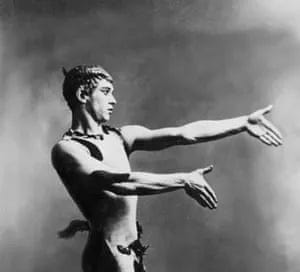The Human League
Art and the body: Homer, Simone Weil, Susan Sontag, Primo Levi and V. Nabokov
In the midst of working on yet another post about AI I realized that I actually do not have that much more to say about AI. I may be obsessed, but as is often the case with obsessions, it is probably better to turn my attention elsewhere. And my attention has been particularly drawn to art—human-created art—via listening to certain podcasts and snippets of commentary relating to AI.
You’ve heard such snippets as well, the floating rumors or even confident statements that human art will soon be created with the benevolent help of AI, or busily balled up with everything on the internet and turned into something else by AI, or replaced altogether by AI—even actors are worried about their bodies being replaced by holograms on film and animals already have been. I’ve heard a theoretical physicist (named Max Tegmark), gush like a kid over an AI that rendered Twinkle Twinkle Little Star in the style of Shakespeare—insert stupefied emoji face here. But what, I guess, triggered me was a tiny moment in a very long interview conducted by computer scientist Lex Fridman with a remarkable person named Stephen Wolfram (also a computer scientist but on a more epic scale).
The two were talking about the ambiguity of words, sense vs. syntax and the murkiness of terms like “hate.” Wolfram remarked that “…if you start with a piece of poetry and you say, I’m going to define my program with this piece of poetry, it’s kind of like that’s a difficult thing. It’s better to say I’m just going to have this boring piece of prose and it’s using words in the ordinary way, and that’s how I’m communicating with my computer…”. In response, Fridman remarked “So there’s some sense where if you take a poem and reduce it to something computable, you’re gonna have very few things left. So maybe there’s a bunch of human interaction that’s just poetic, aimless nonsense…like recreational, like hamster on a wheel. It’s not actually producing anything.” Later, Fridman also declared that “it’s a mess” when “humans try to decide what’s good through literature, through history books, through poetry.”
Baffling! In part because I think it shows misunderstanding of what literature is meant to do, but also because the disrespect seems gratuitous—and maybe not entirely serious; in another interview Fridman had an exchange with the above-mentioned Tegmark, who waxed quite mystical about Allen Ginsberg’s Moloch (from the long poem Howl) without a hint of skepticism from Fridman. Still, I wanted to say: Lex, would you like to go back in time to discuss this with Greek and Spartan warriors? Would you like to explain to them that the epic poems about their heroism, deaths and sufferings were aimless nonsense that didn’t produce anything?
Probably he would not! For one thing, he might get a javelin in the eye, but also in that context I think he would agree: those poems, while not strictly speaking necessary, were inspirational and more, not just on the mental level but physically. They illustrated and affirmed the inexplicable crux of honor, cunning, murder, love and wonder that empower the vulnerable, mortal body to fight to the death for family, home, values, sense of beauty; fighting not merely survive but to triumph, to embody the raw power of life, and through it to crush the opponent. As Simone Weil writes, the real hero of The Iliad is Force, primal, inhuman power expressed through the bodies of humans:
In this work, at all times, the human spirit is shown as modified by its relations with force, as swept away, blinded, by the very force it imagined it could handle, as deformed by the weight of the force it submits to…Exercised to the limit, it turns man into a thing in the most literal sense: it makes a corpse out of him. Somebody was here, and the next minute there is nobody here at all; this is a spectacle the Iliad never wearies of showing us: “... the horses Rattled the empty chariots through the files of battle, Longing for their noble drivers. But they on the ground Lay, dearer to the vultures than to their wives.” The hero becomes a thing dragged behind a chariot in the dust: “All around, his black hair Was spread; in the dust his whole head lay, That once-charming head; now Zeus had let his enemies Defile it on his native soil.” The bitterness of such a spectacle is offered us absolutely undiluted. No comforting fiction intervenes; no consoling prospect of immortality; and on the hero's head no washed out halo of patriotism descends.
Awful yes—but also awe-inspiring.
Keep reading with a 7-day free trial
Subscribe to Out of It to keep reading this post and get 7 days of free access to the full post archives.





